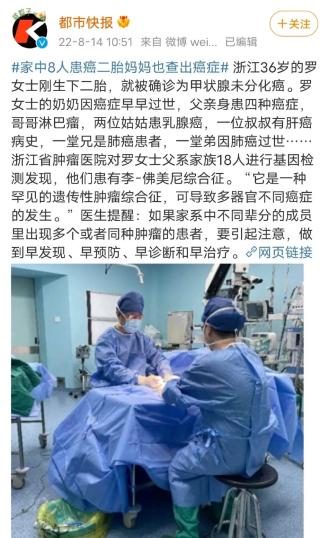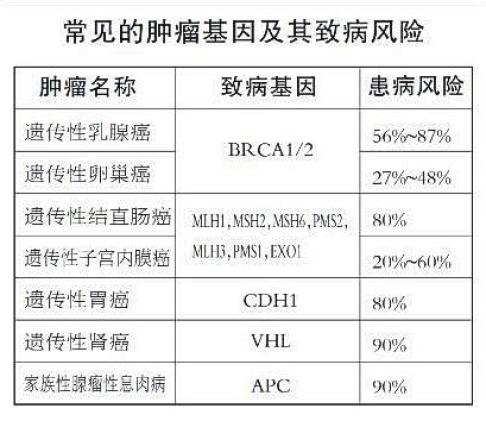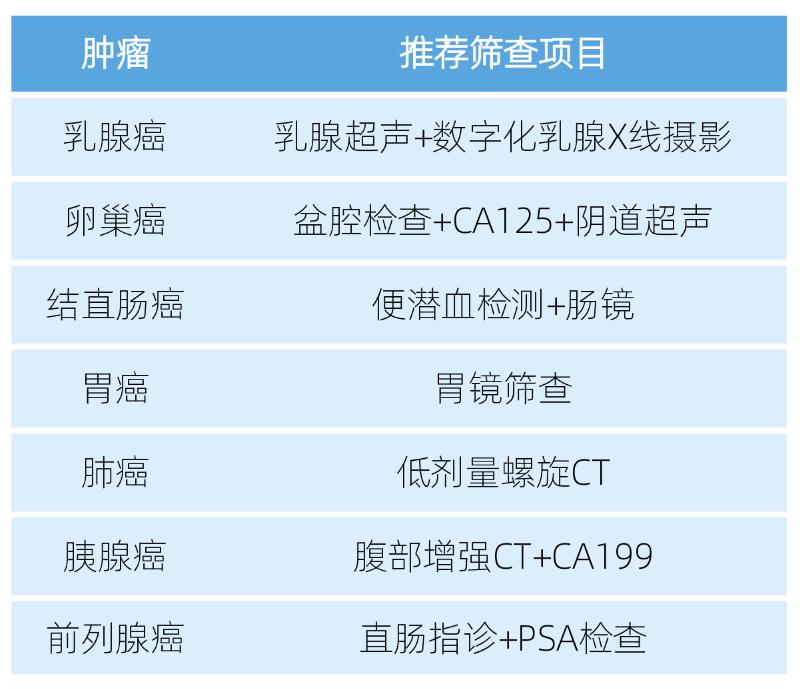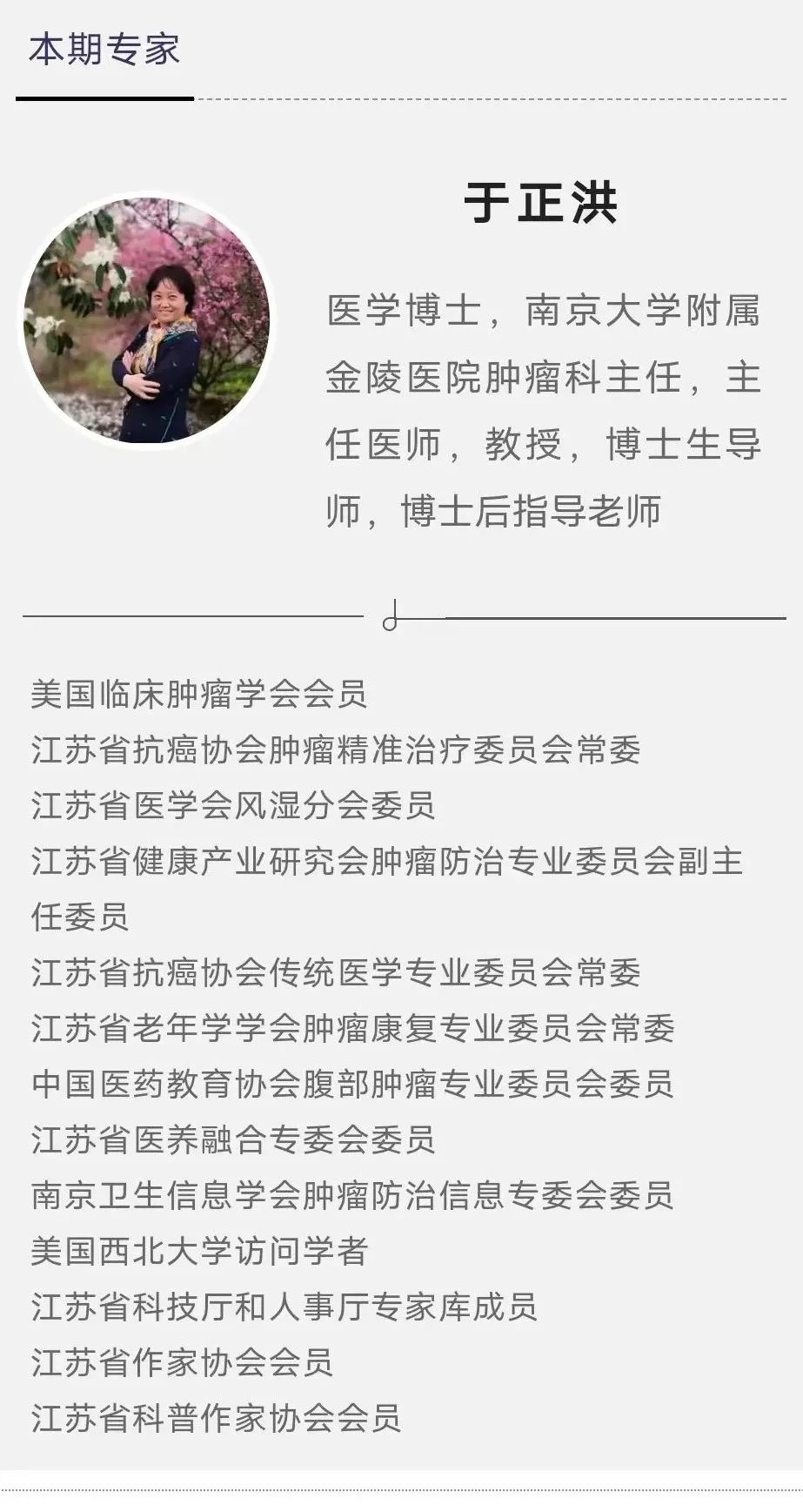Nine cancer patients in a family? Is it safe for me to have a cancer patient at home?
Original health wish you health magazine
Nine cancer patients in one family?
This really sounds scary, and it’s even scarier to think about it.
Nobody wants this to happen to them, so what is "unusual" about this family? What’s the warning for you and me?

Shocked!
A family of nine cancer patients
There is a lady Luo in Zhejiang who has just given birth to a second baby and was diagnosed with undifferentiated thyroid cancer.
This is already a very unfortunate thing. Ms. Luo recalled the past and found that her family seemed to "rush" with the tumor. There were 8 cancer patients in the whole family before!

Grandma, father, brother, two aunts, an uncle, two cousins, and counting herself, nine people suffered from cancer one after another. This unusual phenomenon aroused Ms. Luo’s vigilance, so she came to Zhejiang Cancer Hospital for help.
Doctors tested the genes of Ms. Luo and 18 members of her paternal family, and finally found that this family suffered from a rare autosomal dominant genetic disease-Li-Fraumeni syndrome.
//
Leigh-Fraumeni syndrome is a rare hereditary tumor syndrome, which is mainly caused by the mutation of tumor suppressor gene TP53, and can lead to the occurrence of different cancers in multiple organs, including breast cancer, soft tissue sarcoma and leukemia. People who carry this mutant gene have an increased risk of developing tumors, and most of them occur when they are young.
pay attention to
"Family cancer" is not all genetic diseases.
In fact, it is not a new secret that cancer has the characteristics of family aggregation.
Give a famous example.
Anita Mui is a favorite star of many people. Everyone knows that Anita Mui died of cervical cancer in 2003.

But many people don’t know that the Mei brothers and sisters are all cancer patients. Her sister Mei Aifang died of cervical cancer, her brother Mei Deming died of laryngeal cancer, and Mei Qiming was also diagnosed with colorectal cancer.
The reason why cancer has family clustering is because the occurrence of cancer is really related to genetic factors.

Leigh-Fraumeni syndrome is not the only genetic disease related to tumor, and the common hereditary breast cancer, ovarian cancer syndrome and Lynch syndrome (the most common colorectal cancer and endometrial cancer susceptibility syndrome) belong to it.
Genetic diseases associated with tumors generally have several characteristics:
//
Many people in the family are sick.
The onset age is young (usually < 50 years old or even earlier)
The same patient has multiple or bilateral tumors.
However, "family cancer" is not all related to heredity.
Because the living environment and eating habits of a family are close, sometimes there will be some family clustering cases unrelated to heredity.
For example, if a family eats moldy grains or drinks polluted pond water for a long time, the risk of liver cancer in this family will be much higher than that in the average family, and there may be many cases of liver cancer in the family. But this clustering disease is not caused by heredity, but by environmental pollution and eating habits.
Q:
What if someone at home has cancer?
The so-called "family history of tumor" means that first-degree relatives and/or second-degree relatives have malignant tumors.
//
First degree relatives: parents, children, brothers and sisters.
Second degree relatives: grandparents, uncles, uncles, aunts, uncles and aunts.
In other words, there are cancer patients in the family with a family history of cancer.
People who usually have a family history of cancer will have a higher risk of cancer than those who have no family history of cancer, and the risk of some malignant tumors may even exceed the general population by ten times.
If only one person in the family has cancer, don’t be overly nervous; However, if 2-3 members of the immediate family have cancer, they need to be highly suspected of familial cancer tendency. They can do related tumor genetic counseling and genetic testing, analyze the causes of cancer among many family members, and strive to achieve early detection, early prevention, early diagnosis and early treatment.
At the same time, we should also re-examine the family’s living environment, living habits, especially eating habits, and rule out some cases of tumor clustering caused by environment and diet (rather than heredity).
However, please note that tumors with definite genetic factors still account for a small number of the total incidence of cancer, only 5%~10%, and more cancer patients are sporadic cases.
Therefore, everyone should keep this tumor screening suggestion form in mind to help us stay away from tumors as much as possible.


-Produced by the editorial department of "I wish you health" of Jiangsu Phoenix Science and Technology Publishing House-
Content Planning/Writing/Typesetting: Zhu Jingjing
Original title: "A family of 9 cancer patients? Is it safe for me to have a cancer patient at home? 》
Read the original text